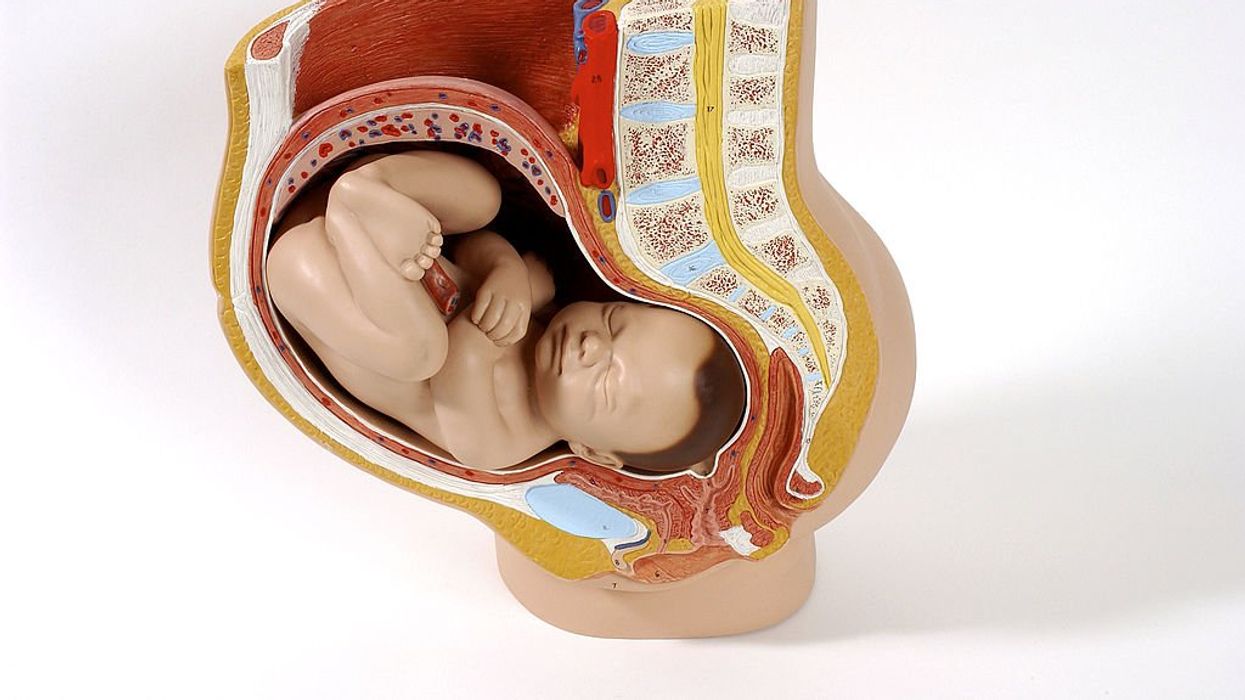
Photo By BSIP/UIG Via Getty Images

The American Medical Association has floated the suggestion that there's no moral reason why taxpayers should not subsidize the provision of wombs from dead or living women to transvestites so that they can carry babies.
A peer-reviewed paper published in the AMA Journal of Ethics in June concluded that even "if there are limits on subsidies, the case could be made that no moral obstacle stands in the way of justifying subsidies for UTx [uterus transplantation] for some transwomen and transmen, just as there seems to be no fully persuasive argument against gestating a child via UTx."
Timothy F. Murphy, a professor of philosophy in the biomedical sciences at the University of Illinois College of Medicine, and Kelsey Mumford, a medical student at Dell Medical School with a gender studies certificate, neither one a medical doctor, claimed that in light of the success of UTx in real women, men "who want to gestate their own children" and men who "want uterus transplants to consolidate their identities but not to gestate children" might take interest in the procedure.
After all, their inability to ever normally bear children might leave them experiencing "psychological dissonance in a way that undermines their health and well-being," according to the academics. "The lack of a uterus also closes off the prospect of gestating a child in a way that is available to women as a class. It follows that lack of a uterus is an obstacle to full participation in the social goods attached to women's identity."
The paper's authors insinuated, on the basis of a 2021 bioethics paper, that transvestites may no longer need to suffer disappointment on account of reality, claiming there are "no absolute barriers in anatomy, hormones, and obstetric considerations that would rule out the possibility of successful UTx" in men.
After arguing that it may not only be morally justifiable but scientifically possible for men suffering gender dysphoria to carry children in wombs lifted from real women, Murphy and Mumford broached the matter of cost.
Since the estimated costs for the procedure run between $100,000 and $300,000, at least for females — there's presently no indication how much it would cost for a man, since it's never been done before — Murphy and Mumford indicated that "all parties interested in UTx will look to both private insurance and government providers for help covering costs."
While acknowledging that most states and the federal government do not presently subsidize fertility treatment for women and that there will inevitably be various criteria for eligibility, the paper's authors concluded that there are no moral obstacles in the way of granting men uteri or enabling them to carry children in their naturally barren bodies.
This paper appeared in an issue entitled "Patient-Centered Transgender Surgical Care."
Mumford introduced the issue with an editorial, wherein she noted that "we have now reached a tipping point" in the field of gender dysphoria-affirming genital mutilation and hormone treatments, where the "focus has largely shifted from fighting for its acceptance as a treatment modality and increasing patients' access to it toward ethical stewardship of this now-validated and accessible set of procedures."
"Rather than funding objective medical studies on transgender medicine, the AMA has chosen activist positions on this delicate topic," Dr. Martin Makary, professor at Johns Hopkins School of Medicine, told the Washington Examiner.
"Why don’t they fund a study on the 10-year regret rate of children who undergo transitioning surgery? What is the suicide rate among those who undergo aggressive hormone or surgical treatment versus long-term talk therapy?" asked Makary.
"Medicine has many crisis issues today — overtreatment, the medical-industrial complex, stagnant cancer research, and skyrocketing health care costs," continued Makary. "It’s odd that the AMA is skipping over these giant issues to focus on uterus transplants for transgender people."
The Daily Mail reported that uterus transplants have only been executed successfully around 100 times worldwide for women. It is a multilayered process that takes over 18 months on average.
Makary told "Fox & Friends" that it's medically possible to do, but the "question is, should it be done?"
Like Blaze News? Bypass the censors, sign up for our newsletters, and get stories like this direct to your inbox. Sign up here!